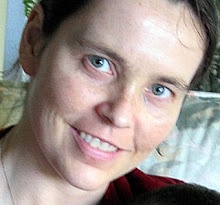My first rotation was with an organization called Readers to Eaters (also called R2E), a relatively new company that aims to promote food literacy by selling books about food, publishing books about food (starting in 2010), and developing educational programs about food. The owners of R2E are Philip and June Jo Lee – he has a background in radio and publishing, and she is a research consultant to the food industry. To Philip and June Jo, being food literate means having an awareness of what one eats and where food comes from.
My internship director set this rotation up for me because of my background in writing and my special interest in nutrition education in the public school system. I had thought it would be a gentle introduction to the internship, encompassing some writing, some observation of Philip in his daily work, and a little research… as usual, my expectations were quite off the mark (yes, this is an ongoing problem for me).
Instead, my task was to conduct a needs assessment for a food literacy program in the community. Philip’s goal was to create a unique curriculum that fills the gaps left by existing programs. I worked from home, using the Internet to find non-profits, for-profits, school districts and individual schools, and government agencies that are promoting food literacy at some level. Over a two-week period (which was really eight days because we have seminar on Monday), I collected notes on a number of local programs, querying some by email or phone to find out what their staff thought were the unmet needs for food literacy in the community, compiling a resource list for Philip, and writing up my recommendations for a nutrition education curriculum that would answer these unmet needs.
I found some fantastic organizations: Food $ense, Operation Frontline, 826 Seattle, School’s Out Washington, Solid Ground’s Apple Corps (LOVE the name), and Sustainable Table. There were many others; in fact, there are literally hundreds of individuals and programs out there trying to teach kids about food through cooking, gardening, and nutrition education. Everyone I spoke to was passionate about food, interested in the R2E mission, and eager to share information.
I am even more excited now about my long-term goal to get involved in nutrition education in the public schools, though I think it will be more interesting and useful to talk about how to grow, cook and eat real food than to teach the principles of nutrition. These are exciting times, folks, when kids are getting turned on to healthy food by pulling a carrot out of the ground, or by tasting roasted kohlrabi from their own school’s organic garden. Unfortunately, the UK seems to be beating us to the school lunch revolution (thanks in part to Jamie Oliver). Is anyone else out there foreseeing interesting changes in school lunches thanks to the Obamas?
How to Lose Arm Fat
3 years ago
